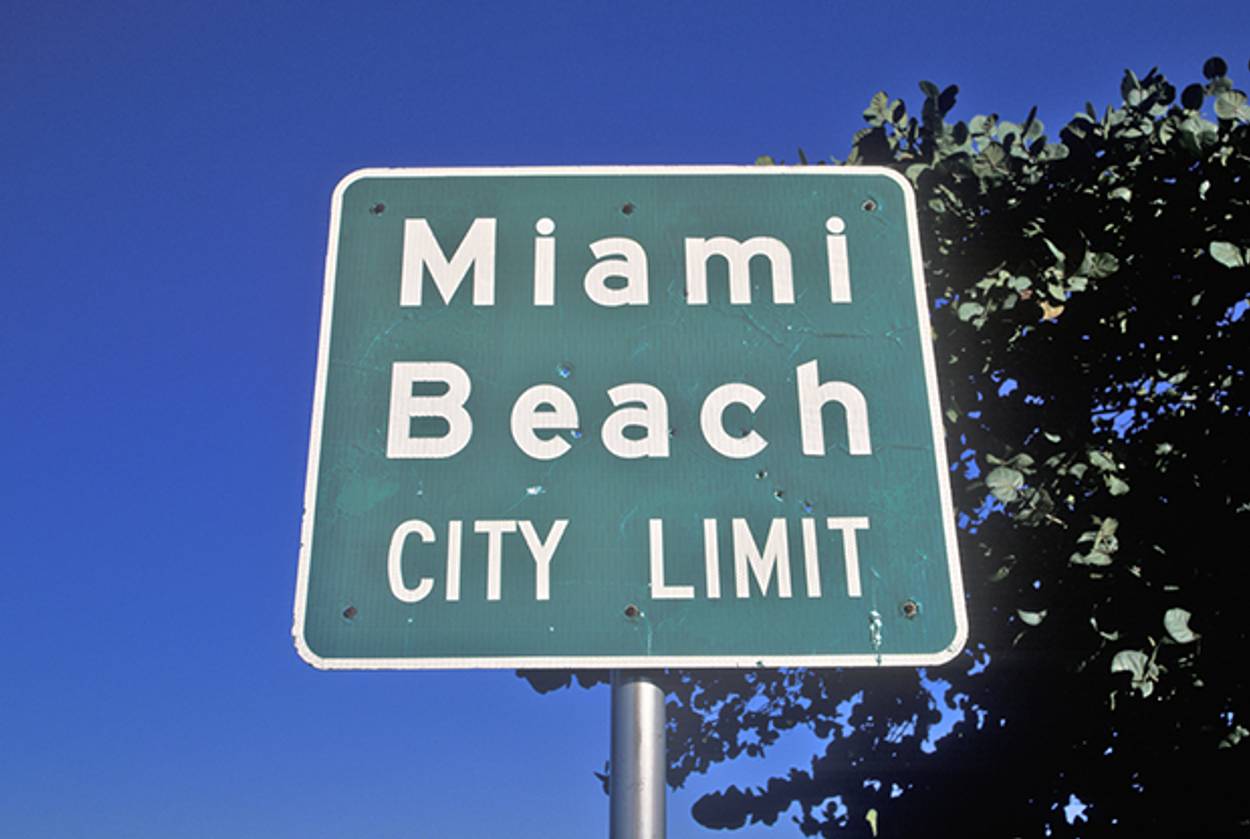Atheists Demand Removal of Miami Beach Eruv
Organization says ritual marker imposes Orthodox Judaism on all residents




An eruv constructed last summer ignited a tense battle among residents of the Miami Beach neighborhood of Pinetree Park, and it shows no signs of simmering. An eruv is a Jewish loophole of sorts, a minimally defined wall inside which observant Jews are allowed to carry objects on Shabbat, a practice which is typically forbidden outside the home.
There are eruvs in cities like New York City or Los Angeles, thin strings attached to pre-existing poles, that most residents are entirely unaware of. But some eruvs are controversial—a Westhampton Beach eruv recently prompted three federal lawsuits—and Miami Beach is the latest battleground.
According to the Miami New Times, an eruv has in fact surrounded Miami Beach since 1985 in the form of seawalls (those count too), but a kayak ramp built into the water in Pinetree Park constituted a breach. The new eruv was constructed to close the proverbial gap. At the time, the New Times described this particular eruv as “a giant spider web slowly surrounding the park.” Residents objected to the park’s addition, which they said was both unconstitutional and ugly.
Now, the New Times reports, the neighborhood battle has escalated, with a national atheist organization weighing in on the controversy.
The Freedom From Religion Foundation (FFRF) has written a letter to the city demanding not only that the eruv in Pinetree Park be dismantled, but that all other public eruvs on the island be taken down.
“The religious significance of eruvin is unambiguous and indisputable,” FFRF staff attorney Andrew Seidel wrote yesterday. “They are objects which are significant only to some Jews as a means to obey religious laws that have no bearing on non-adherents. They have no meaning except as a visual, public communication of a purely religious concept for religious believers of a single faith. The City cannot allow such permanent religious displays to be erected on public land.”
The city, however, has long stood behind the eruv—Miami Beach, after all, has a sizable Jewish population, so it may seem to the city to be a small concession to accommodate the needs of a large community—and as the newspaper points out, isn’t likely to change its tune now.
Stephanie Butnick is chief strategy officer of Tablet Magazine, co-founder of Tablet Studios, and a host of the Unorthodox podcast.